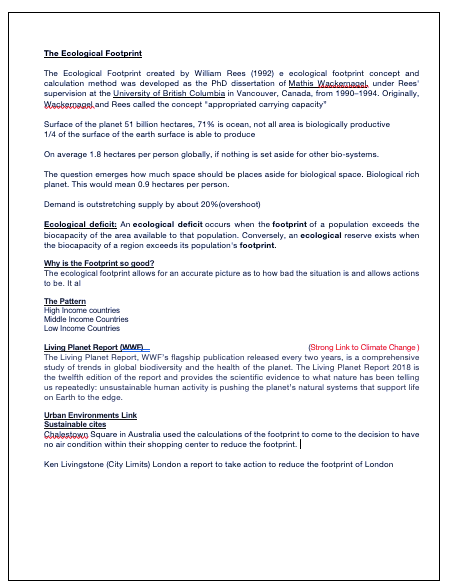IB

|Patterns in Resource Consumption Lesson's |
|Content|
|1. Global trends in consumption|
Global and regional/continental progress towards poverty reduction, including the growth of the “new global middle class”
Measuring trends in resource consumption, including individual, national and global ecological footprints An overview of global patterns and trends in the availability and consumption of:
• water, including embedded water in food and manufactured goods
• land/food, including changing diets in middle-income countries
• energy, including the relative and changing importance of hydrocarbons, nuclear power, renewables, new sources of modern energy
Synthesis, evaluation and skills opportunities
-
How different patterns and trends are interrelated and involve spatial interactions between different places
|Lessons|
|Lesson 1 Patterns and Trends in Global Consumption |
|Lesson 2 The Growing middle class|
 |  |
|---|---|
 |  |
|Lesson 3 Global consumption|
|Lesson 4 The distribution of Oil|
|Reading/Revision & Assessment|
|Emerging Middle Class - Changing Global Marketplace|
|Media|
|What is OPEC? | CNBC Explains|
|Try taking Notes while watching|
|Footprint - Accounting for a Small Planet|
|Media in the classroom|
|'How To End Poverty in 15 years' Hans Rosling - BBC News |
|Student work-Infographics|
 |
|---|
 |
|---|
 |
|---|
 |
|---|
|2. Impacts of changing trends in resource consumption|
|Lessons|
The water–food–energy “nexus” and how its complex interactions affect:
• national water security, including access to safe water
• national food security, including food availability
• national energy security, including energy pathways and geopolitical issues The implications of global climate change for the water–food–energy nexus
• Detailed examples of two countries with contrasting levels of resource security The disposal and recycling of consumer items, including international flows of waste
Synthesis, evaluation and skills opportunities
-
How perspectives on, and priorities for, national resource security vary between places and at different scales
|Lesson 5 The water food Energy Nexus |
|Lesson 6 |
 |  |
|---|---|
 |
|Lesson 7 Nigeria and Shell |
|CASE STUDY|
|Reading/Revision & Assessment|
|Media|
|'A healthy economy should be designed to thrive, not grow | Kate Raworth |
|Oil Depletion – Fuel for Thought | Filip Van Den Abeele | TEDxGhent |
|'TEDxWWF - Andy Wales: The Water-Food-Energy Nexus - Why Everything you Consume is Connected |
|Media in the classroom|
|Lessons|
|3. Resource stewardship|
Divergent thinking about population and resource consumption trends:
• pessimistic views, including neo-Malthusian views
• optimistic views, including Boserup
• balanced views, including resource stewardship Resource stewardship strategies, including:
• the value of the circular economy as a systems approach for effective cycling of materials and energy
• the role of the UN Sustainable Development Goals and progress made toward meeting them
|Lesson 8 Oil Consumption|
|Lesson 9 Oil Consumption|
 |  |
|---|
Synthesis, evaluation and skills opportunities
-
Different perspectives on global resource use and the likely effectiveness of management actions at varying scales
|Reading/Revision & Assessment|
| The Circular Economy|
|Case Study Cards|
|Practice Papers|
|CASE STUDY|
|Recommended Resource|
|Revision |

























